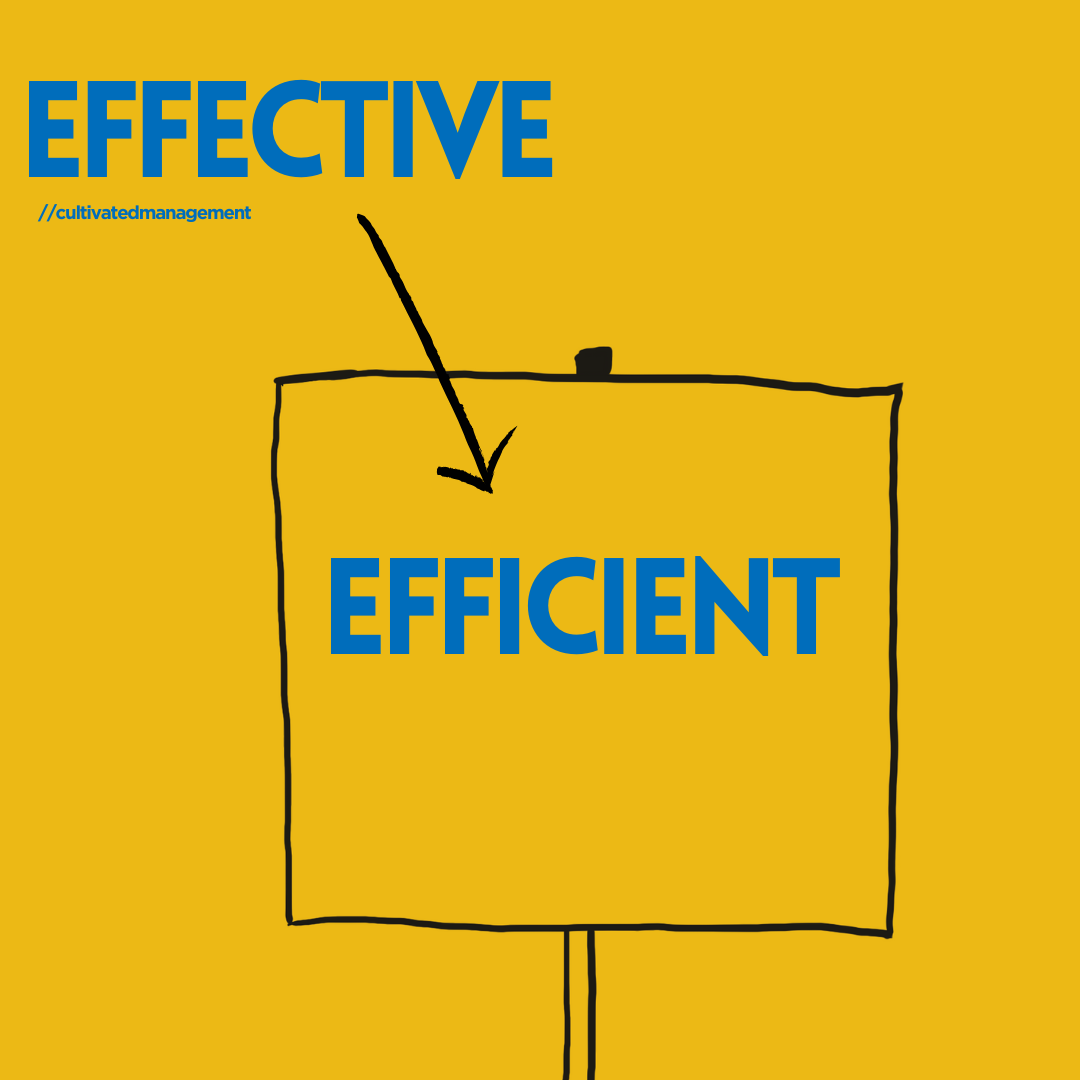
The business world is obsessed with efficiency. We must be faster. We must be more efficient. Do more with less.
I worked with an “efficiency” manager in one organisation who spent his days finding ways to make the organisation more efficient.
This was varied work, from spotting obvious waste in processes or work structures, to simply removing departments from a spreadsheet. Yes, the knock on effect was entire teams made redundant - and yes, carnage ensued as he paid no attention to what those teams actually did. But the numbers on the spreadsheet showed more “efficiency”. (true story)
He would chase costs and put in place plans to control these costs. It was a perpetual job as costs would pop up somewhere else. He would chase those, and “manage” these costs, only for more costs to pop up somewhere else.
A roundabout of chasing costs, without ever stopping to ask “What is causing this cost?” or even, “Is this cost part of doing business?”.
He was rewarded handsomely for making the company more efficient.
The problem was the lagging impact of all of this activity was the growing inability for the organisation to meet its purpose; the reason it existed.
The random nature of efficiency programs and interventions (and entire teams being let go) meant costs spiralled and people struggled to deliver value to customers.
Profits dropped, customer satisfaction went through the floor, staff morale was in the negatives, yet, by measuring time and costs alone, he had been making the organisation more efficient.
The organisation was no longer effective though.
It’s fair to say it wasn’t overly effective to start with.
He’d taken ineffective processes, teams and structures and made them more efficient. That doesn’t make sense.
My work is different.
I advocate for being effective first, even if you have to jump through hoops of fire, fight stupid rules, spend a long time doing something right, and yes, even if it has to cost more to start with.
You make your delivery of value and work effective first to achieve your purpose and deliver business results.
Once it’s effective you then make it efficient.
People are generally effective. Computers and automation, and tooling, if used correctly, can help to make something efficient.
Stapling yourself to work and finding ways to optimise it (efficiency) is a good move - but only if what you’re improving is effective in the first place.
And the same theory applies to communication.
I was in a meeting a while back where execs, doing a change transformation, kept talking about how to communicate efficiently.
That’s the wrong starting point. They should have been starting from the perspective of making the communication effective.
Effective communication takes time, care, attention, thought, creativity and purpose.
Efficient communication is often ineffective. An email designed to convey 5 key messages to 2000 people is ineffective. Sure, it may be more efficient (only communicating once), but I doubt it will hit the mark. I’d also argue no communication actually takes place either.
Effective communication provides clarity and alignment. It achieves its purpose to the right audience - and it takes time to get this right. It often takes multiple messages delivered in different mediums, tailored for specific contexts.
Effective communication is rarely efficient.
Just like delivering value to customers - it takes time, care, attention, thought, creativity and purpose. Once you’re effective, then look for ways to be more efficient.
There is little point in work, or life, in making something ineffective more efficiently ineffective.
